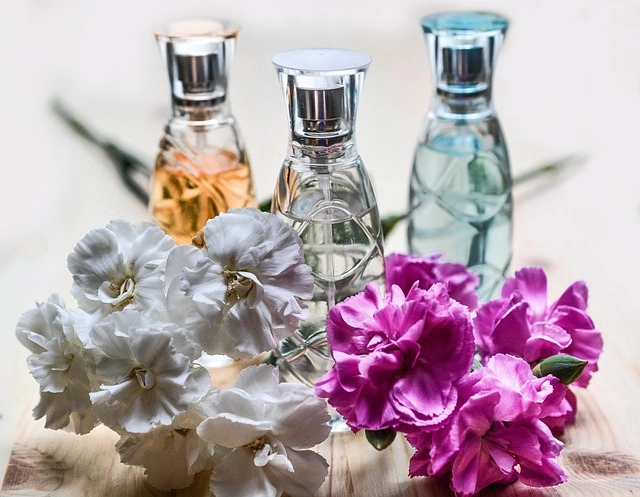Clean Perfume blends natural ingredients with modern craftsmanship, offering a gentle yet sophisticated scent experience. When evaluating value, consider fragrance notes, brand reputation, quality, longevity, sillage, and personal preference. Established brands known for clean perfumes ensure high-quality, balanced scents justifying their price. Long-lasting, versatile fragrances with positive reviews offer excellent value, catering to individual taste preferences.
“Unraveling the value of clean perfumes in a crowded market is essential for any fragrance enthusiast. This article guides you through the intricate process of evaluating scent quality and pricing, ensuring you make an informed decision. From understanding the allure of clean fragrances to assessing brand reputation and consumer feedback, we delve into key factors that set apart excellent clean perfumes. By comparing fragrance notes, examining longevity, and considering personal preferences, you’ll discover if a particular scent offers good value or merely superficial appeal.”
- Understanding Clean Perfume's Unique Appeal
- Comparing Fragrance Notes: A Key Factor
- Brand Reputation and Quality Assessment
- Pricing Strategies: Value vs Cost
- Consumer Reviews: Real-World Feedback
- Longevity and Projected Scent Intensity
- Personal Preferences: Subjectivity of Scents
Understanding Clean Perfume's Unique Appeal

In the realm of fragrances, Clean Perfume stands out as a refreshing alternative to traditional colognes and perfumes. Its unique appeal lies in its ability to blend natural ingredients with modern craftsmanship, resulting in scents that are both invigorating and gentle on the senses. Unlike harsh chemical-laden clean colognes, this category offers a harmonious fusion of essential oils, botanicals, and sustainable base notes, creating fragrances that tell a story of purity and sophistication.
The allure of Clean Perfume is not just about its composition; it’s also about the experience it offers. These scents are designed to elevate daily routines, transforming mundane moments into sensory journeys. Whether you’re looking for a morning boost or an evening indulgence, a clean perfume can adapt to various occasions, enhancing your personal style and leaving a lasting impression without being overpowering—a subtle yet distinctive scent that speaks volumes about your taste in fragrances.
Comparing Fragrance Notes: A Key Factor

When evaluating whether a perfume offers good value compared to similar scents, comparing fragrance notes is a key factor. Each scent comprises various notes that evolve over time, creating its unique character. Top notes, which are initially detected, typically include citrus, herbs, or light fruits. Middle (or heart) notes, revealing themselves as the top notes fade, often feature floral or spicy elements. Base notes, the longest-lasting part of a fragrance, provide depth with woody, musky, or ambery scents. A clean perfume, for instance, might boast fresh, aquatic top notes that transition to floral middle notes and end with earthy base notes.
To truly assess value, consider how these notes harmonize and whether they offer a unique twist on the traditional clean cologne concept. A successful scent will blend its notes seamlessly, creating a balanced, memorable fragrance. By delving into the intricate dance of fragrance notes, you can discern if a perfume stands out in the market and offers a truly exceptional clean scent experience.
Brand Reputation and Quality Assessment

When evaluating whether a perfume or cologne offers good value, one crucial aspect is the brand’s reputation for quality. Established brands with a history of crafting clean perfumes or clean colognes that are well-received by critics and consumers can be a reliable indicator of excellence. These brands often have rigorous standards and use high-quality ingredients, ensuring a consistent and refined scent experience.
Assessing the overall quality involves considering factors such as the complexity of notes, the longevity of the fragrance, and its projection—how it spreads and lingers on the skin. A reputable brand will typically deliver a well-blended composition with a balanced mix of top, middle, and base notes, creating a harmonious scent that lasts throughout the day. This attention to detail and use of premium ingredients contribute to a superior product and justify the price point when compared to similar scents in the market.
Pricing Strategies: Value vs Cost

When comparing perfumes, understanding pricing strategies is key to determining value. While a clean perfume or clean cologne’s price may seem high, it’s essential to consider the factors contributing to its cost. Crafting such fragrances involves intricate processes, using high-quality ingredients, and often, specialized techniques that require expertise and time. These elements collectively influence the final price point.
Instead of focusing solely on the dollar amount, evaluating the overall value becomes crucial. A longer-lasting scent with exceptional quality and a unique fragrance profile may be considered better value than a cheaper alternative that fades quickly or lacks complexity. Thus, when assessing whether a clean perfume or cologne is good value, it’s beneficial to look at its performance, aroma longevity, and the experience it offers—all of which can contribute to a satisfying and meaningful scent journey.
Consumer Reviews: Real-World Feedback

When evaluating a clean perfume or clean cologne, consumer reviews offer invaluable insights into its performance in real-world scenarios. These opinions provide an authentic perspective on how others perceive the scent’s longevity, sillage (the trail of fragrance left behind), and overall appeal. Many satisfied customers praise the clean and fresh notes, describing it as “light yet captivating” or “perfect for everyday wear.” The reviews often highlight the scent’s versatility, stating that it suits various occasions, from casual outings to formal events.
In the world of fragrances, real-world feedback is crucial in determining a product’s value. Positive consumer experiences reinforce the idea that this clean perfume or cologne offers excellent bang for your buck compared to similar scents on the market. The uniform admiration for its fresh and crisp aroma suggests that it stands out as a preferred choice for those seeking a refined yet approachable fragrance.
Longevity and Projected Scent Intensity

When evaluating a perfume’s value, one key factor to consider is its longevity—how long the scent lingers on the skin. A clean perfume with excellent staying power can offer significant value for money, ensuring that the fragrance remains noticeable throughout the day or even into the evening. This is especially important when comparing similar scents, as longer-lasting fragrances provide more bang for your buck.
In addition to longevity, projected scent intensity plays a crucial role in determining overall value. A clean perfume that has a robust but not overpowering projection can be a true game-changer. It allows the wearer to enjoy the fragrance without being too intense or too subtle. For instance, a well-blended clean cologne with just the right amount of sillage (the trail of scent left behind) can create a lasting impression while remaining subtle enough for everyday wear, making it an exceptional value in the market.
Personal Preferences: Subjectivity of Scents

When evaluating whether a scent is good value compared to similar fragrances, personal preferences play a significant role. Scents are highly subjective, and what one person finds appealing might not resonate with another. What makes a clean perfume or clean cologne “good” is often an individual experience. Factors like cultural background, personal history, and unique olfactory memories shape our scents preferences, making comparisons across fragrances complex.
For instance, some may prefer the crisp, fresh notes of a clean perfume, while others might lean towards warmer, woody scents. The notion of “clean” itself can evoke different images for each person—a seaside breeze or a freshly laundered bedsheet. Thus, when considering value, it’s essential to remember that what matters most is how a scent makes you feel and whether it aligns with your personal aesthetic and tastes, not solely the price tag or brand reputation.



